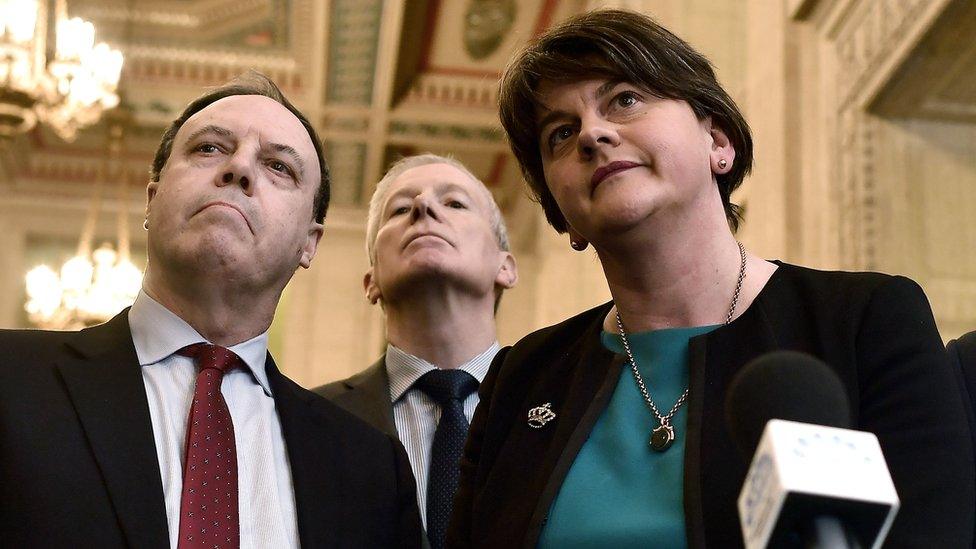NI budget to include £410m from DUP deal
- Published
- comments
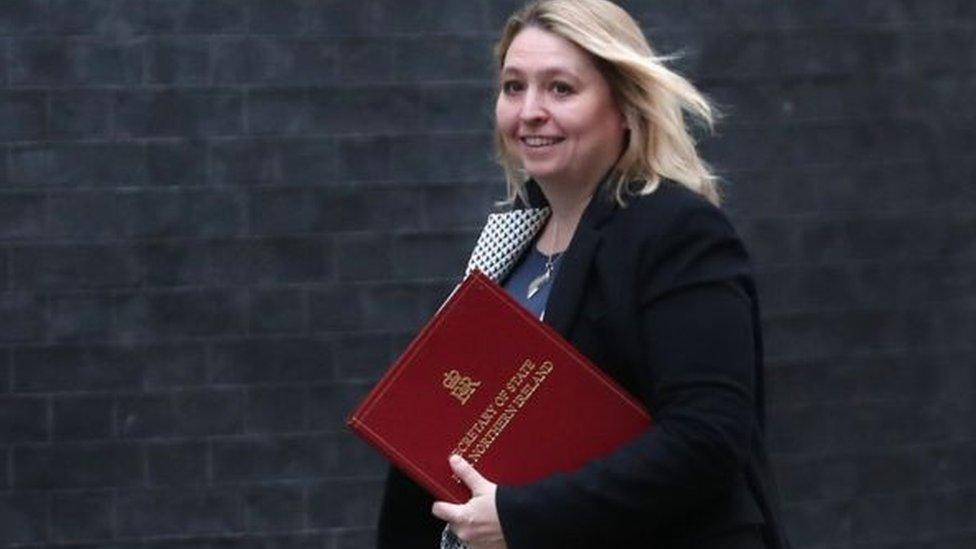
Karen Bradley said domestic rates will rise by 4.5%
A new Stormont budget will include £410m of the £1bn package negotiated by the DUP in return for backing the Conservatives at Westminster.
The secretary of state said the allocation from the confidence and supply money includes £80m for health and education pressures.
There will also be £30m to support programmes to address issues of mental health and severe deprivation.
A further £100m goes to the long-term transformation of the health service.
Under the confidence and supply deal, the DUP agree to back the Conservatives in key votes - such as a Budget and a confidence motion - but are not tied into supporting them on other measures.
Capital spending for key infrastructure projects will receive a £200m boost.
The budget for the next financial year also includes an above inflation increase in domestic rates.
In a written ministerial statement, external, Karen Bradley said domestic rates will rise by 4.5%, a step which she describes as "necessary and important" to continue to support public services, particularly in health and education.
Business rates will, by contrast, only rise by 1.5%, in line with inflation and the current small business rate relief scheme will continue.
The rate increase by the secretary of state contrasts with the policy adopted by Stormont finance ministers over the last decade, which has been to freeze domestic regional rates, only increasing them in line with the rate of inflation.
Mrs Bradley said she had engaged intensively with the Northern Ireland Civil Service (NICS) to understand the needs of local departments.
She pointed out that it would be open to a restored executive, of course, to consider and revise the financial position in the future.
'Difficult and distressing'
DUP leader Arlene Foster welcomed the inclusion of the £410m from the confidence and supply agreement.
"Cynics doubted the confidence and supply money would ever be delivered, but today it has helped achieve an improved budget compared to the one that many feared," she said.
"Our efforts will help alleviate pressures in health and education, tackle issues with mental health and deprivation, transform our NHS and build new infrastructure."
Sinn Féin Vice-President Michelle O'Neill called for a British-Irish Intergovernmental conference to pave the way for power-sharing to be restored.
"This is a disappointing budget which doesn't provide the resources needed for the public services our people need and deserve," she said.
"It's not good for householders, for victims, for health, for our economy, our colleges or the homeless."
Sinn Fein's Máirtín Ó Muilleoir said the money pledged to the DUP - billed as additional funding, was in fact simply being used to "plug the gaps".
"The DUP money isn't additional at all - it's fully thumbs in the dyke time," he said.
The SDLP's Claire Hanna said the announcement represented a "direct rule budget from London directed by the DUP".
"The failure of the DUP and Sinn Féin to restore power-sharing has given London and the DUP a free hand in our affairs," she said.
"We have reached a very difficult and distressing point."
Ulster Unionist leader Robin Swann said those likely to complain the loudest about the "step towards direct rule are the very same people who are blocking the local institutions in the first place.
"In the past they have also proven themselves to be fiscally incompetent, so I suspect their morally vacuous cries will now land on deaf ears."
- Published8 March 2018
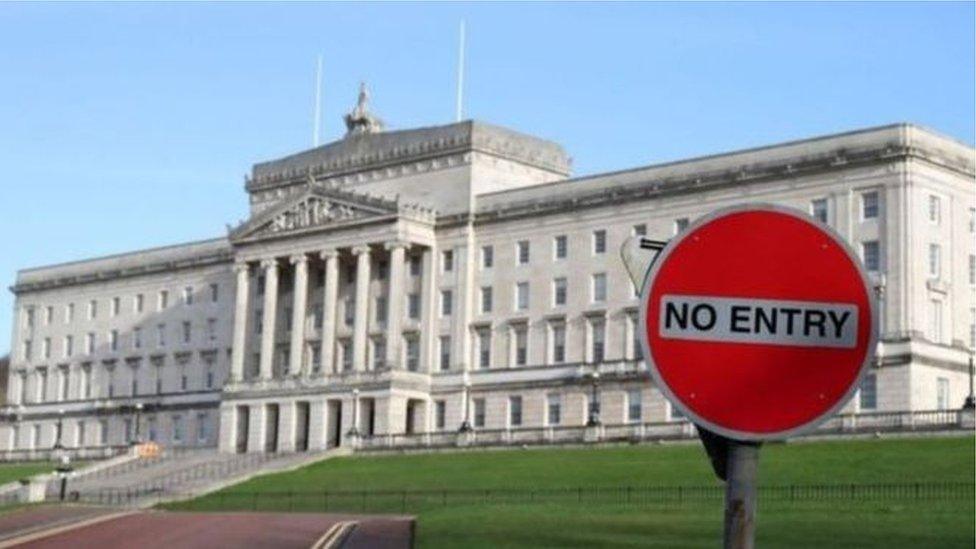
- Published5 February 2018
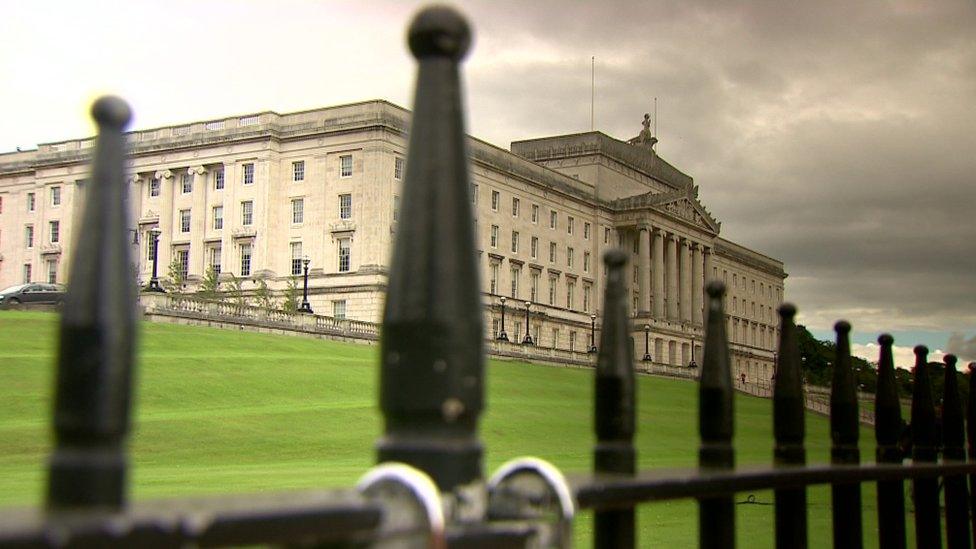
- Published28 June 2017
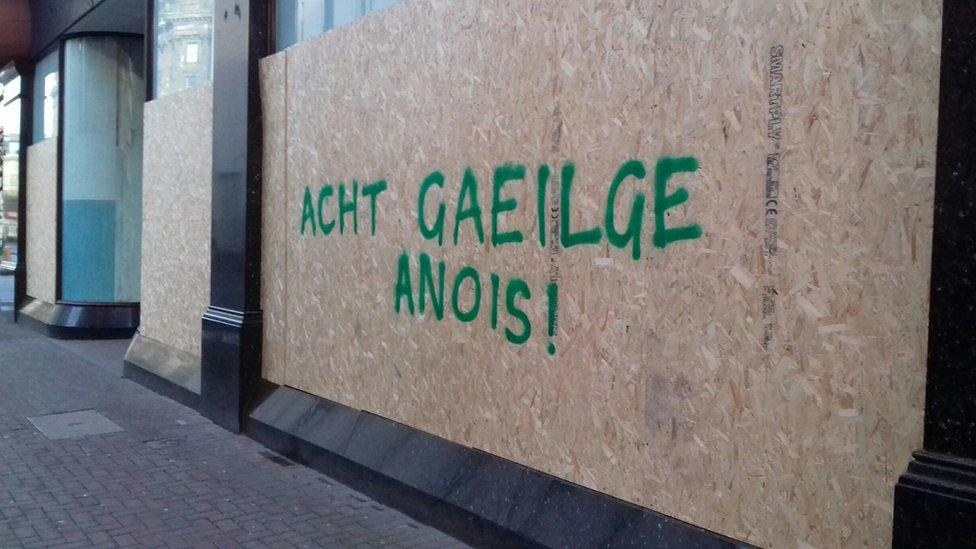
- Published26 June 2017
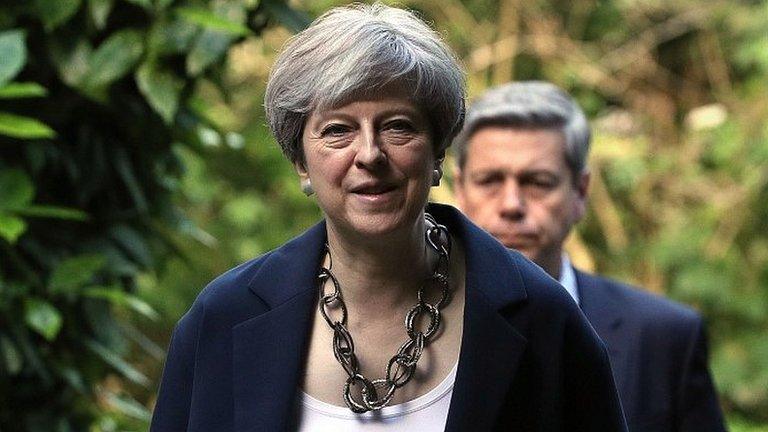
- Published19 February 2018
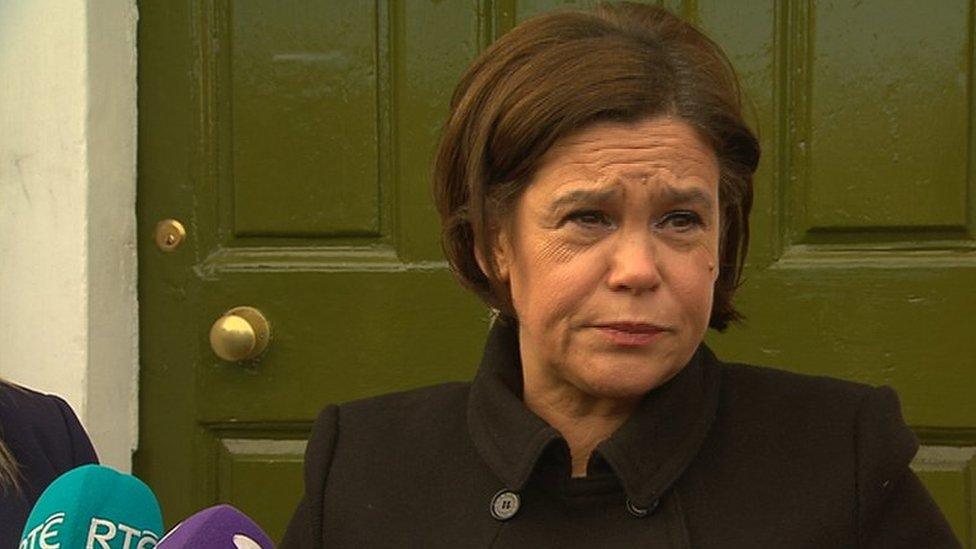
- Published16 February 2018
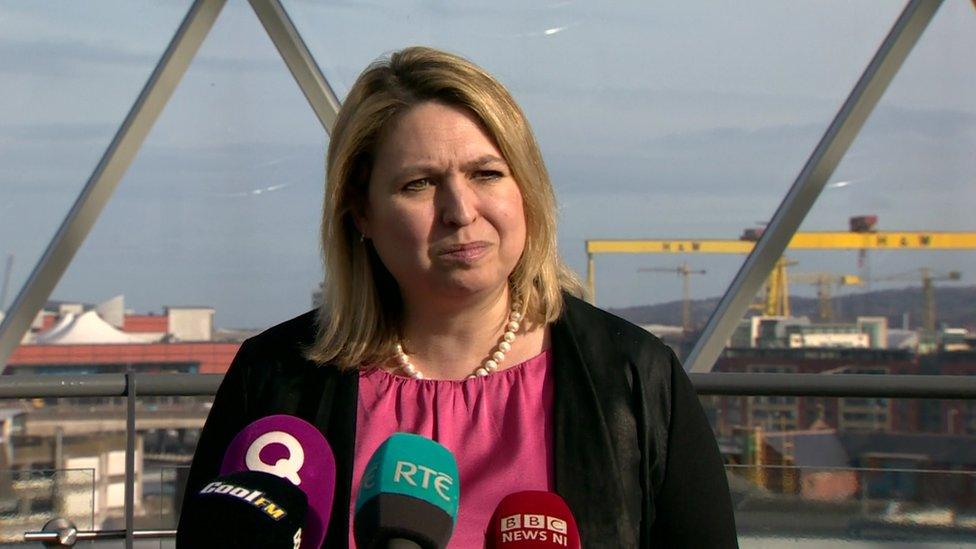
- Published15 February 2018
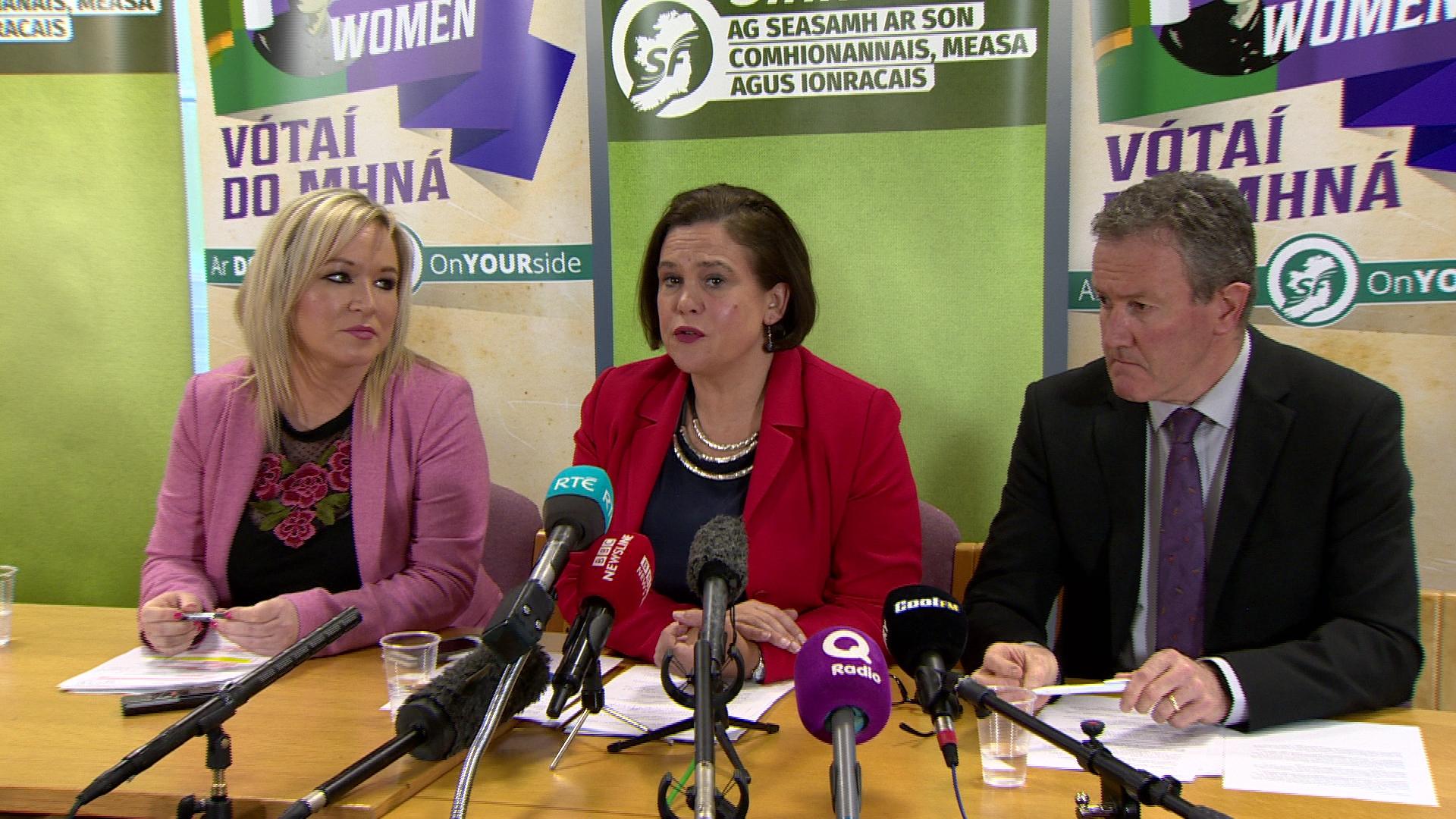
- Published14 February 2018
